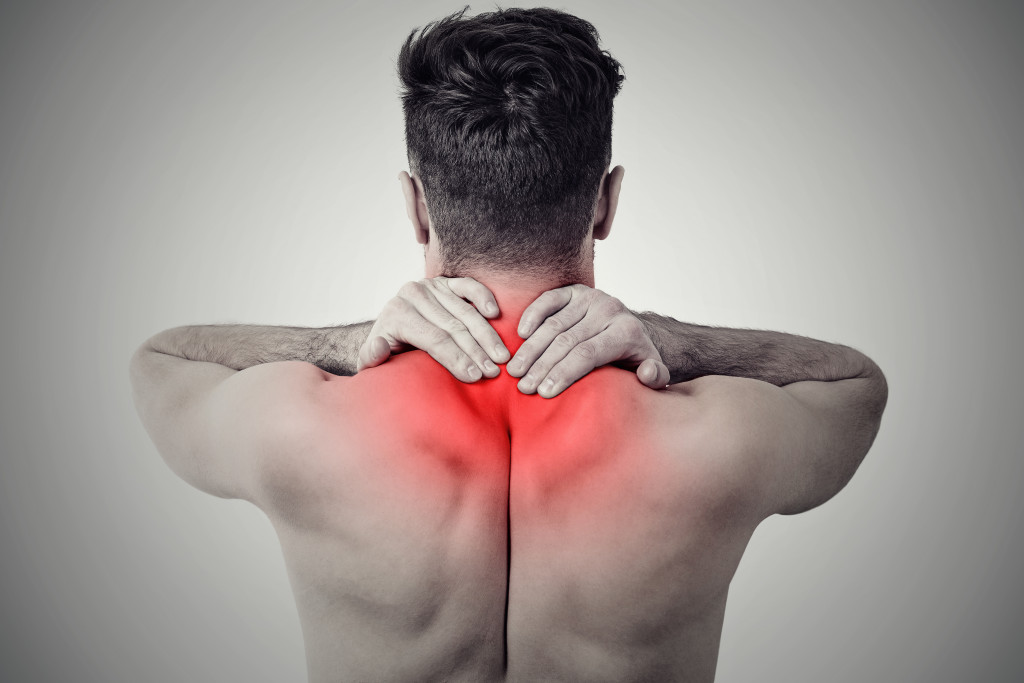- Poor posture and muscle/ligament strain are common causes of chronic back pain.
- Herniated discs and osteoarthritis can also lead to chronic back pain.
- Stress, anxiety, and depression may manifest as physical symptoms such as back pain.
- Natural remedies, exercise, and physical therapy may be used to address chronic back pain.
- Consult a doctor to create an appropriate treatment plan for your condition.
Back pain is arguably the most common ailment that millions of people suffer from all over the world. However, some types of back pain tend to last for an extended period, and some people keep experiencing excruciating pain for months or even years. This is known as chronic back pain, and it can be debilitating and seriously impact one’s quality of life. Here’s what you need to know about chronic pain in general, why it happens on your back, and how you can deal with it.
What is Chronic Pain?
Chronic pain is characterized by ongoing, persistent pain that lasts for weeks or months. It can be accompanied by other symptoms such as fatigue, sleep disturbance, and depression. Chronic pain is not limited to any particular area of the body; it can happen anywhere from the head to and neck. But the most common form of chronic pain is in your back. Here are some reasons as to why that happens.
Poor Posture
One of the leading causes of chronic back pain is poor posture. Sitting or standing in the wrong way can cause strain on your spine and lead to long-term pain. If you spend most of your time sitting in front of a computer, adjust your chair’s height to ensure that your feet are flat on the floor and your eyes are level with the top of the screen. Also, try to take breaks and walk around every hour to avoid sitting for long periods.

Muscle or Ligament Strain
Straining your back muscles or ligaments is another reason for chronic back pain. This commonly occurs when you lift something heavy improperly or in a way that doesn’t support your back’s condition. To prevent strain, you should try to lift using the strength of your legs instead of your back. If possible, avoid lifting excessively heavy items altogether.
Herniated Disc
A herniated disc occurs when one of the discs in your spine ruptures and puts pressure on the surrounding nerves. This can cause acute and sometimes chronic pain. Treatment for a herniated disc may vary depending on the severity of the pain, but it could include physical therapy, surgery, or medications.
Osteoarthritis
Osteoarthritis is a degenerative joint disease that affects millions of individuals. In this condition, the cartilage that cushions the joints wears away over time, causing pain and stiffness in the joints. This cartilage deterioration can also impact the spine and result in chronic back pain.
Psychological Factors
Stress, anxiety, and depression can also lead to chronic back pain. Studies have shown that if stress and depression are present, it can cause physical symptoms, including tension headaches or back pain. As such, stress management techniques such as mindfulness meditation may help reduce muscle tension.
Dealing With Chronic Back Pain
There are various ways you can manage chronic back pain. Here are some of those ways:

Spine Treatment
Sometimes your back pain can be related to your spine. When this happens, you need to visit an experienced spine doctor immediately. They can diagnose your condition and recommend the right treatment, such as physical therapy, chiropractic care, or medication.
Natural Remedies
Exploring natural remedies is one of the best ways to start dealing with chronic back pain. Several herbal remedies are effective in reducing pain and inflammation. Ginger, turmeric, and chamomile are just a few examples of these herbs. You can consume them in tea, add them to your meals, or take supplements. Acupuncture and massage therapy have also been proven to reduce back pain symptoms.
Exercises
Exercising regularly is essential for maintaining good physical and mental health, but it’s especially important for chronic back pain. Walking, swimming, and yoga can help improve your flexibility, strength, and posture. Pilates, in particular, is excellent for strengthening the muscles that support the spine. However, it’s crucial to consult with your doctor before starting any new exercise routine, especially if you have a history of back problems.
Physical Therapy
If your back pain is severe, you may need professional help. Physical therapy is an effective way to treat chronic back pain. A physical therapist will work with you to create a personalized treatment plan that includes exercises, stretches, and manual therapy techniques. They will teach you how to manage and prevent symptoms from worsening.
Chronic back pain can be debilitating, but you can manage it with proper treatment and some lifestyle changes. By understanding the causes of chronic back pain and taking steps to address them, you can live a more comfortable life.

